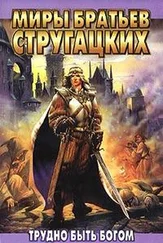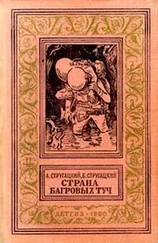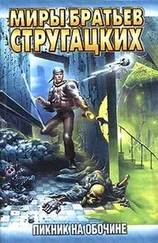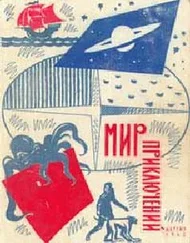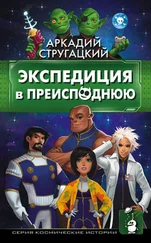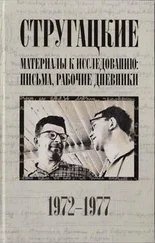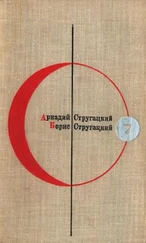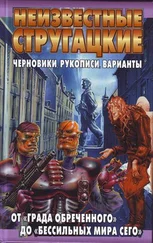Аркадий Стругацкий - Six Matches
Здесь есть возможность читать онлайн «Аркадий Стругацкий - Six Matches» весь текст электронной книги совершенно бесплатно (целиком полную версию без сокращений). В некоторых случаях можно слушать аудио, скачать через торрент в формате fb2 и присутствует краткое содержание. Жанр: Фантастика и фэнтези, на английском языке. Описание произведения, (предисловие) а так же отзывы посетителей доступны на портале библиотеки ЛибКат.
- Название:Six Matches
- Автор:
- Жанр:
- Год:неизвестен
- ISBN:нет данных
- Рейтинг книги:4 / 5. Голосов: 1
-
Избранное:Добавить в избранное
- Отзывы:
-
Ваша оценка:
- 80
- 1
- 2
- 3
- 4
- 5
Six Matches: краткое содержание, описание и аннотация
Предлагаем к чтению аннотацию, описание, краткое содержание или предисловие (зависит от того, что написал сам автор книги «Six Matches»). Если вы не нашли необходимую информацию о книге — напишите в комментариях, мы постараемся отыскать её.
Six Matches — читать онлайн бесплатно полную книгу (весь текст) целиком
Ниже представлен текст книги, разбитый по страницам. Система сохранения места последней прочитанной страницы, позволяет с удобством читать онлайн бесплатно книгу «Six Matches», без необходимости каждый раз заново искать на чём Вы остановились. Поставьте закладку, и сможете в любой момент перейти на страницу, на которой закончили чтение.
Интервал:
Закладка:
The Director frowned.
"Sometimes it is inevitable," he said. "Have you forgotten all those doctors who used to inject themselves with cholera and plague germs?"
"Why must we go so far back? After all, that is ancient history by now!"
They lapsed into silence. Day was drawing to a close and grey shadows gathered in the corners of the room.
"Incidentally," the Director said, avoiding the Inspector's eye, "I ordered Komlin's safe to be broken open, and I have his notebooks. They might interest you." "Most certainly," said the Inspector. "Only I'm afraid you won't learn very much from them," the Director said with an apologetic smile. "It's all very specialized stuff. If you like I can take them home with me this evening and try to compile a digest for you..."
The Inspector was frankly relieved at the suggestion. "But you mustn't expect too much," the Director hastened to add. "These neutrino beams... You know, it was like a bolt from the blue for all of us. No one had ever imagined anything like it. Komlin is a pioneer in this field, the first in the world. So I'm not sure I'll be able to make much of his notes either."
The Inspector sat for a while after the Director had gone, thinking over what he had heard. He fervently hoped that Komlin's notes would shed some light on the affair. He pictured Komlin seated at his desk with a set of electrodes on his shaven head, weighing matches glued together. No, acupuncture had nothing to do with it. This was something altogether new, something Komlin himself scarcely believed in, judging by the care he had taken to hide his gruesome experiments from his colleagues.
Yes, this was a wonderful age, the Inspector thought. Wonderful people too, these Communists of the fourth generation. Like their predecessors, they forged boldly ahead with little thought of themselves, from year to year advancing more and more daringly into the unknown. It required tremendous efforts to channel this vast ocean of enthusiasm so as to use it with maximum effect. Mankind's victory over Nature must be won through the medium of ingenious machines and devices and precision instruments, not by sacrificing the lives of its finest representatives. And not only because those who live today can accomplish far more than those who died yesterday, but also because Man is the most precious thing on Earth. The Inspector rose heavily from his chair and limped over to the door. He moved slowly and painfully for three reasons-in the first place by habit, secondly, he was beginning to feel his age, and thirdly, his leg bothered him. "Those old wounds of mine," he muttered as he limped down the corridor.
Early next morning, at the very hour when the doctors, having failed to diagnose Komlin's complaint, noted with relief that the patient was regaining his power of speech, Rybnikov and Leman were sitting in the Director's office, facing each other again across the huge desk.
The Inspector had a thick notebook on his knees, while the Director was looking through a heap of papers-notes, diagrams, drawings and sketches.
The Director spoke rapidly, at times disjointedly. His eyes, red-rimmed from lack of sleep, looked through the Inspector. Now and again he would stop in the middle of a phrase as if astounded at the import of his own words. The Inspector listened intently, and gradually out of the vast mass of incredible facts and data a general pattern began to emerge. Here is what he learned.
Komlin was keenly interested in the effect of neutrino beams on brain tissue, firstly because literally nothing was known about it. It was only recently that streams of neutrinos of an intensity great enough to be of practical value had been obtained, and as soon as the neutrino generator arrived Komlin decided to see what could be done with it.
Secondly, Komlin expected a great deal from these experiments. High-energy radiation (nucleons, electrons, gamma rays) disrupted the molecular and intra-atomic structure of the proteins of the brain, in other words, destroyed the brain. It could produce nothing but pathological changes in the organism-this had been proved experimentally. The neutrino-that infinitesimally small neutral particle with no rest mass-was quite a different matter. Komlin assumed that it would produce no explosive reaction or changes in molecular structure, but would merely cause moderate excitation in the brain protein, strengthening the nuclear fields and perhaps creating new, hitherto unknown fields of force. All of Komlin's hypotheses proved to be correct.
"Much of what was in the notebooks is unintelligible to me," the Director interrupted himself to remark. "Some things I simply refuse to believe. That is why I am only giving you a very rough sketch in the hope that it will shed some light on the mystery of those conjuring tricks. Although that too is fantastic enough."
The idea for neutrino acupuncture struck Komlin as soon as he began experimenting on animals. The monkey he was working with injured its paw, and the wound healed with amazing speed. So did the dark spots in the animal's lungs, traces of tuberculosis so common in monkeys living in moderate climates.
The work on neutrino acupuncture proceeded successfully. Several dogs injected with diverse biological poisons were rapidly cured by the neutrino treatment. Komlin's needle (as Gorchinsky named the method) cured tuberculosis in monkeys dozens of times faster and more successfully than the most effective antibiotics.
At this stage there was no actual need for experimenting on human beings; Komlin was not yet working on the method of treatment, he was only proving its feasibility in principle. In his famous report he had voiced the assumption that the human and animal organism possessed some hidden curative powers which were so far unknown to science, but which had already manifested themselves during the experiments with neutrino acupuncture. He had worked out a detailed program for switching over from experiments on animals to experiments on human beings -a carefully thought-out fool-proof scheme, providing for a wide margin of error and for the gradual advance from the simplest and obviously harmless neutrino punctures to more complicated, combined ones. The program provided for the participation in the work of large groups of doctors, physiologists and psychologists. But...
The Inspector had not been mistaken. Komlin had not only been working on neutrino acupuncture. Before long the experiments with the neutrino generator showed that the extraordinary development of the curative powers of the organism, though important, was by no means the only effect of neutrino beams on the brain. The experimental animals behaved very strangely. True, not all of them and not always. It was observed that most of those that had been given brief treatments behaved normally, but the "favourites," those that had been subjected to numerous and diverse experiments, gave the two researchers some surprises. But while the young laboratory assistant Gor-chinsky regarded their antics as amusing or annoying tricks of Nature, Komlin with his scientific intuition sensed that they were on the track of an important scientific discovery.
The dog Genny (short for "Generator") showed a sudden talent for circus tricks though no one had taught him; he would "shake hands," walk on his hind legs and even on his forepaws, and one day Gorchinsky had found him sitting on a stool, staring at one spot, and emitting short barks at regular intervals. He did not recognize Gorchinsky and growled at him.
The behaviour of Cora, the baboon, was still more curious. After a treatment, she had been sitting in the generator chamber with Komlin, "chatting" quietly with him, when suddenly she jumped violently as if she had received an electric shock. Staring fixedly at some invisible object in the corner of the room, she growled, whimpered and backed away in fright. Komlin tried his best to soothe her, but she would not be comforted. She sat huddled in fear against the wall for a whole hour, her eyes glued to the corner. Now and again she emitted a sharp cry-the danger signal. After a while the attack passed, but Komlin noticed to his surprise that Cora never entered the chamber after that without glancing fearfully at that particular corner.
Читать дальшеИнтервал:
Закладка:
Похожие книги на «Six Matches»
Представляем Вашему вниманию похожие книги на «Six Matches» списком для выбора. Мы отобрали схожую по названию и смыслу литературу в надежде предоставить читателям больше вариантов отыскать новые, интересные, ещё непрочитанные произведения.
Обсуждение, отзывы о книге «Six Matches» и просто собственные мнения читателей. Оставьте ваши комментарии, напишите, что Вы думаете о произведении, его смысле или главных героях. Укажите что конкретно понравилось, а что нет, и почему Вы так считаете.

